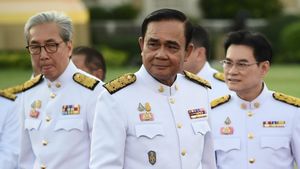Recent reports have shed light on the tragic impact of the Ukraine conflict, particularly concerning the deaths of citizens from Kyrgyzstan. An investigation conducted by the Kyrgyz edition of Azattyk revealed at least 70 individuals from Kyrgyzstan who died as part of Russia's military invasion of Ukraine. Among these, 38 were confirmed as citizens of Kyrgyzstan, with some having previously gained Russian citizenship.
The compilation of this grim list was based on open-source data, including reporting from the BBC Russian Service and Mediazona. It indicates both the personal tragedies experienced by families and the larger demographic patterns among those fighting on behalf of Russia. Notably, 18 of the deceased were reported to have left Russian prisons to join the fight, many through contracts with the private military company Wagner Group, whereas others were serving within the ranks of the Russian military.
Among the ages of the deceased, the youngest was just 19 years old, and the oldest was 61. The fact remains stark: as these individuals were drawn to the frontlines, so too were their families left to wonder about their fates. Just last year, more than 100 Kyrgyz citizens contacted the Ukrainian project "I Want to Live," seeking information about their loved ones who had gone to war.
The casualty figures for Russian forces alone are sobering. According to investigations by Mediazona and other news agencies, the losses sustained by Russia during its invasion have reached approximately 160,000 individuals. The numbers, derived from local reports, social media obituaries, and public records, indicate the scale of human loss connected to this conflict. The estimates paint only part of the picture; the actual toll could potentially be higher or lower.
Legal accountability surrounding these military deployments also exemplifies the broader challenges faced by civil society. For example, the Moscow City Court upheld the sentencing of French political scientist Laurent Vinatier, who was sentenced to three years for allegedly gathering military data without registering as a “foreign agent.” This case, which included meetings where Vinatier asked questions about the Russian military’s deployments, raised eyebrows internationally, illustrating how individuals collecting data or acting against state directives can quickly find themselves facing severe legal repercussions.
Vinatier acknowledged his guilt and requested expedited proceedings, demonstrating the pressures facing those who engage with sensitive political topics under Russia's expansive legal framework targeting dissent.
Another case highlighting state measures against perceived threats involves Viktor Levakov, a volunteer for the "Nemtsov Bridge" memorial fund for Boris Nemtsov, who was also sentenced to four years for alleged extremism financing after donations were sent to the Anti-Corruption Foundation (FBK). Levakov argued he was unaware of the FBK's later characterization as extremist and acknowledged his actions were rooted in error rather than malice.
The backdrop to these prosecutions is increasingly fraught; the Russian government has categorized multiple organizations, including the FBK and associated opposition networks, as extremist since June 2021, creating legal jeopardy for anyone previously affiliated with their initiatives. Interviews with officials and family members of those affected reveal heart-wrenching tales of misunderstanding and the subsequent repercussions of remittances made during simpler times.
Incidents of state repression have surged alongside the war's escalation, showcasing how legislation has been weaponized. Now, Russian courts regularly hand down penalties, with activists facing charges for supporting organizations now labeled extremist. Legislation targeting military dissenters has also expanded, with some individuals facing severe jail sentences for activities framed as harmful to national security.
The situation culminated recently when authorities sentenced a resident of Domodedovo to 16 years for allegedly plotting attacks on military targets, including missile defense systems. The military trial has drawn controversy over its handling and transparency, raising alarms over the extent of civil liberties under duress.
Investigators claimed the accused had not only visualized the coordinates of defense installations near Moscow but had also been involved with smuggling arms from Ukraine. Such allegations point to the continued risks those engaging with dissent face. The outpouring of violence, alongside legal estrangements, emphasizes the increasingly tense atmosphere, wherein individuals criticize the military and government operations.
So, where does accountability lie? Should the families of those fallen see justice or merely another wave of governmental silence? These questions echo through the halls of justice, as the war's toll on personal lives becomes evident through untold narratives and legal trials aimed at silencing dissent.
While the international community holds its breath, assessing casualty figures and investigating war crimes, the fate of those who feel the impact of decisions made far beyond their borders remains uncertain. The stories of soldiers marked by war and victims of political repression intertwine, challenging perceptions of right and wrong. Looking forward, the dialogues surrounding accountability, justice, and the human cost of modern warfare will significantly shape the narratives of those involved.



